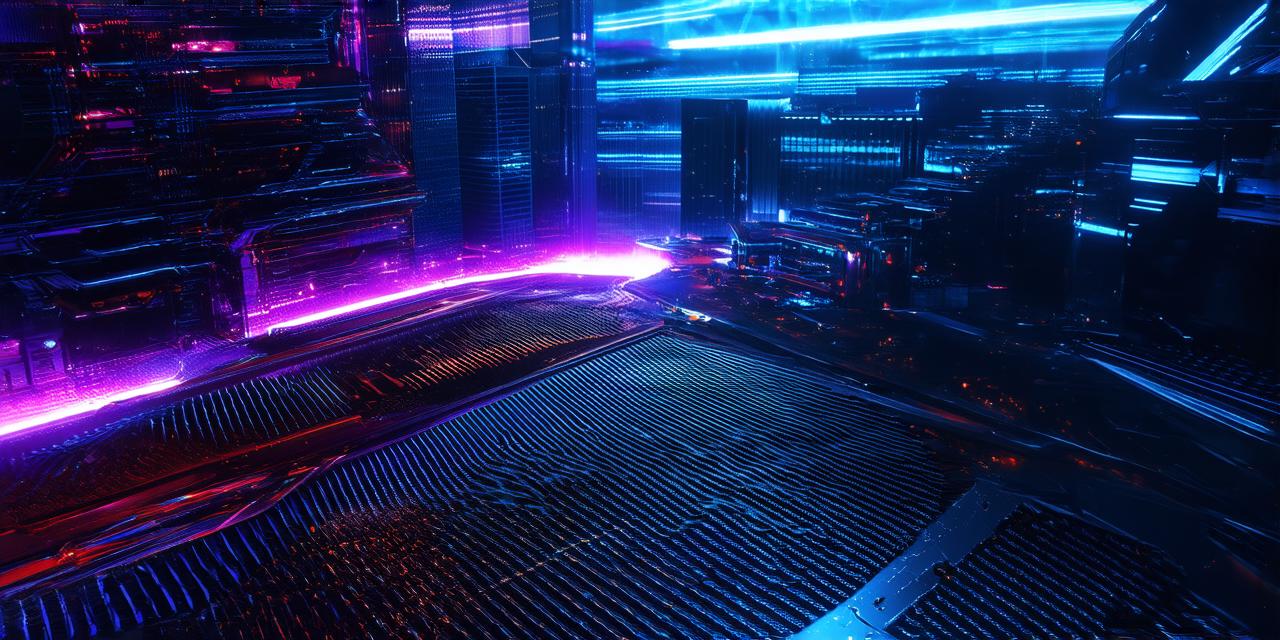Introduction:
Unreal Engine has been one of the most popular game engines among developers worldwide. It offers cutting-edge technology and a user-friendly interface that enables game developers to create immersive and interactive experiences easily. In this article, we will explore what to expect from Unreal Engine 8, including new features, improvements, and advancements that are set to make game development even more exciting.
New Features:
Unreal Engine 8 is expected to bring several new features to the table that will enhance game development. These include:
-
Dynamic Weather System – The ability to create dynamic weather systems in your games is a major advancement. With this feature, you can simulate real-world weather conditions like rain, snow, and fog, which can greatly enhance the atmosphere of your game.
-
Ray Tracing – Unreal Engine 8 is expected to introduce support for ray tracing, a technique that simulates the behavior of light to achieve more realistic lighting effects. This feature will be especially useful for creating photorealistic environments and characters.
-
Real-time Multiplayer – With Unreal Engine 8, you will be able to create real-time multiplayer games without the need for dedicated servers. This means that your game can run smoothly on any device with an internet connection, making it more accessible to a wider audience.
-
Improved Animation Tools – Unreal Engine 8 is expected to include improved animation tools that will make it easier to create realistic character movements. With these tools, you can create fluid animations that closely mimic the movements of real-world characters.
-
AI Enhancements – The artificial intelligence system in Unreal Engine 8 is expected to receive significant improvements. This means that you will be able to create more sophisticated AI behaviors that can adapt to changing game conditions and player actions.
-
Virtual Reality Support – Unreal Engine 8 is expected to include built-in support for virtual reality, allowing developers to easily create VR games without the need for additional software or plugins.
Improvements:
In addition to new features, Unreal Engine 8 is also expected to improve on existing functionality in several key areas. Some of these improvements include:
-
Performance – Unreal Engine 8 is expected to offer significant performance improvements over previous versions. This means that games built with the engine will run smoother and more efficiently, even on lower-end hardware.
-
Graphics Quality – With the addition of ray tracing and other advanced graphics features, Unreal Engine 8 is expected to deliver unparalleled graphical fidelity. This means that you can create games with incredibly realistic lighting effects, textures, and environments.
-
User Interface – The user interface in Unreal Engine 8 is expected to be more intuitive and streamlined than previous versions. This will make it easier for developers to work with the engine, even if they are new to game development.
-
Collaboration – Unreal Engine 8 is expected to include improved collaboration tools that will make it easier for teams of developers to work together on projects. With these tools, you can share code, assets, and other information in real-time, speeding up development times and improving overall productivity.
-
Scalability – The scalability of Unreal Engine 8 is expected to be greatly improved, allowing you to create games that can run on a wide range of devices and platforms. This means that your game can reach a larger audience and generate more revenue.
Advancements:
Unreal Engine 8 is also expected to bring several advancements in the field of game development. These include:
-
Augmented Reality – Unreal Engine 8 is expected to include support for augmented reality, allowing developers to create games that blend virtual elements with the real world. This means that your game can be played in any environment and can interact with the physical world in unique ways.
-
Machine Learning – Unreal Engine 8 is expected to include built-in support for machine learning, allowing developers to use data analytics to optimize game performance and improve player engagement.
